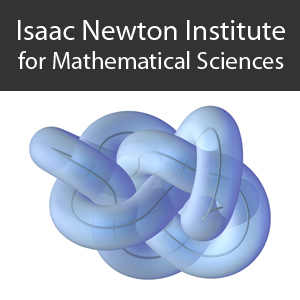Co-operative roles for DNA supercoiling and nucleoid-associated proteins in the regulation of bacterial transcription
35 mins 10 secs,
32.20 MB,
MP3
44100 Hz,
125.0 kbits/sec
Share this media item:
Embed this media item:
Embed this media item:
About this item

| Description: |
Dorman, C (Trinity College Dublin, Ireland)
Wednesday 05 September 2012, 09:10-09:50 |
|---|
| Created: | 2012-09-10 09:06 |
|---|---|
| Collection: | Topological Dynamics in the Physical and Biological Sciences |
| Publisher: | Isaac Newton Institute |
| Copyright: | Dorman, C |
| Language: | eng (English) |
| Abstract: | DNA supercoiling and nucleoid-associated proteins (NAPs) contribute to the regulation of transcription of many bacterial genes. The horizontally-acquired Salmonella pathogenicity island (SPI) genes respond positively to DNA relaxation, to the Fis and H-NS nucleoid-associated proteins and to the OmpR global regulatory protein. The ompR gene is autoregulated and responds positively to DNA relaxation. Binding of the Fis and OmpR proteins to DNA in the SPI-1 and SPI-2 islands and at the ompR gene promoter is differentially sensitive to the topological state of the DNA while H-NS binds regardless of the topological state of the DNA. These data illustrate the overlapping and complex nature of NAP and DNA topological contributions to transcription control in bacteria. They also show that these properties are shared by the core and the horizontally-acquired components of the bacterial genome. |
|---|---|
Available Formats
| Format | Quality | Bitrate | Size | |||
|---|---|---|---|---|---|---|
| MPEG-4 Video | 640x360 | 1.84 Mbits/sec | 489.33 MB | View | Download | |
| WebM | 640x360 | 806.33 kbits/sec | 208.57 MB | View | Download | |
| Flash Video | 484x272 | 568.59 kbits/sec | 147.01 MB | View | Download | |
| iPod Video | 480x270 | 505.97 kbits/sec | 130.88 MB | View | Download | |
| MP3 * | 44100 Hz | 125.0 kbits/sec | 32.20 MB | Listen | Download | |
| Auto | (Allows browser to choose a format it supports) | |||||

